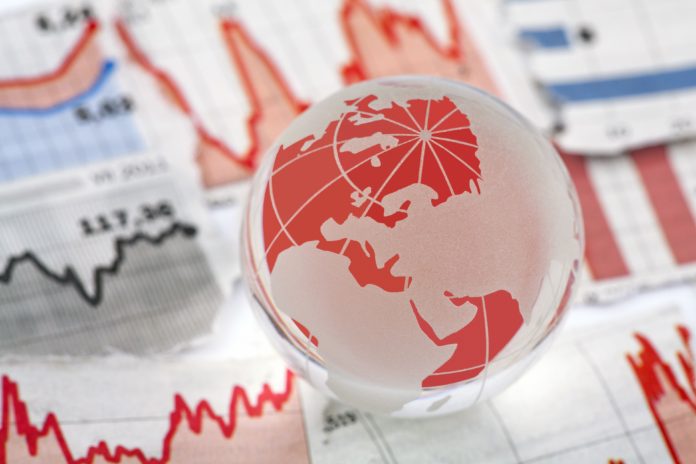In order to comprehend how populism inadvertently shapes the global economy, one first has to understand the meaning and implication of the word.
What is populism?
Various people will define populism in a variety of ways, but the definitions all have something in common. Any actual definition of populism will invoke in an individual the image of a people ‘standing together’ against another group of people who ‘threaten’ their belief systems and concerns.
That image is the basic conception of populism. It is an ‘us against them’ concept mostly perpetuated in the political environment.
Why populism on the rise in today’s world?
When you look at the global scene today, there is a lot of reason for discontent. In Africa countries such as Kenya buckle under the weight of drought and famine. Egypt continues to suffer the economic aftermath of a dictatorial regime. Natural calamities in Australia and Europe leave many civilians without homes and with no recourse but to appeal to the government for aid and support.
Discontent among member of the world’s population, when coupled with global competition, are the foundations of the global rise in populism. People in the world are tired of suffering, so they look for leaders who will solve their problems with immediate effect. As a result, more and more global leaders express support over the concerns of the layman. They carry out actions on behalf of a majority people for the betterment of this majority, sometimes at the expense of the present minority.
Why does the rise of populism impact the global economy?
The strength of the world economy is calculated using a variety of factors. Major financial strongholds such as the World Bank and the IMF base this calculation on similar factors. The determinants of a given nation’s economy include the strength of the country’s currency and its ability to carry out home and multilateral trade, its Gross Domestic Product (GDP), the productivity of its labor workforce and job security of its civilians.
Populism affects the policies of a nation, and subsequently its economy. The global economy is affected particularly when countries with sway over it are vastly altered by populism.
How does the heightened elevation of populism in today’s world affect the global economy?
Perhaps the greatest impact populism has had on the world’s financial status is the shift in global trade alliances and the fall of GDPs. Take the example of Brexit. Just a week ago, Britain finally severed its ties to the region’s free trade bloc, the European Union in a historic step that is being termed the Brexit. Backtrack a bit to the advent of Brexit. For many years, Britain has been one of the largest contributors to the European Union according to reports sent out by the country’s leaders who were for the exit. Populism was factored in the strategies used to convince the masses to vote for the change. ‘For you to receive better healthcare and lower taxes, vote for Brexit’ ‘We need less immigrants in the nation so that we can hold more jobs in our country’ and so many other mantras in the same vein were used.
Brexit happened. But the predicted economic effect of the shift in the alliance is significant. For one, Britain’s GDP is expected to fall according to Forbes reviews. This drop in revenue is because the country now has to scrounge for trading partners it had access to while in the EU. Similarly, certain countries, including the US while under Barack Obama’s presidency, stated that Britain will be a ‘secondary trading option’ to blocs like the EU because the bloc comes to the table with more favorable trading agreements. Also, the pound has already suffered a loss in strength against the US Dollar and the Chinese Yuan. Populism in this case of has led to the loss of currency strength, loss of revenue and possibly stunted international trade. All these detract from the strength of the world’s economy.
Populism may also manifest in more a violent manner. In Turkey, for example, it is showcased in the intolerance of opposition by the current government. On Tuesday the 4th of April 2017 a Syrian chemical attack was allegedly purported by the ruling regime against its civilians. Both of these cases are forms of populism perpetuated by the countries’ leaders who believe that they are the ‘victims’ and that their subjects are ‘the elite’ who should be subdued. The populism of this sort that leads to violence not only leads to loss of life but also to lower investments due to insecurity fears. Furthermore, the loss of life means such countries suffer smaller labor forces and consequentially lower productivity growth rates and GDPs. These falls, in turn, hamper the growth of economy on the global scale.
Politicians who favor populism such as the US president Donald Trump and Britain’s Jeremy Corbyn influence the policy-making processes of their respective countries. Populism, as a result, influences the economic-political environment of the world. A populist policy, like say, building an international wall to create jobs may influence world economy both positively and negatively. Strained bilateral ties would mean reduced trade between nations thus lower GDPs. On the other hand, companies commissioned to build the wall would bring in money in form of taxes which may recoup a fraction of the lost revenue. Likewise, populist policies reducing the number of immigrants in a country can be good and bad for the economy. It could be positive because fewer immigrants would mean more jobs, fewer funds allocated to their upkeep and higher per capita incomes, and negative because of a reduced workforce. Going to war to please a majority would hurt the economy because of the expenses required to acquire ammunition and soldiers, while retaliatory measures like sanctions would lower international trade and collapse economies.
Finally, populism casts a shadow on the business environment of a nation. A populist culture that advocates for consumerism grow the global economy and vice versa. A point in case is when a populist leader lowers taxes in his nation. The citizens have more money to spend and businesses reap the benefits. In the same way, a populist leader may hinder business growth as he or she fights to create or keep jobs over industrialization. Nativist populists hinder globalization and thus global advancement while the opposite is also true.
Depending on where you’re standing, populism can be either a good or a bad thing.




